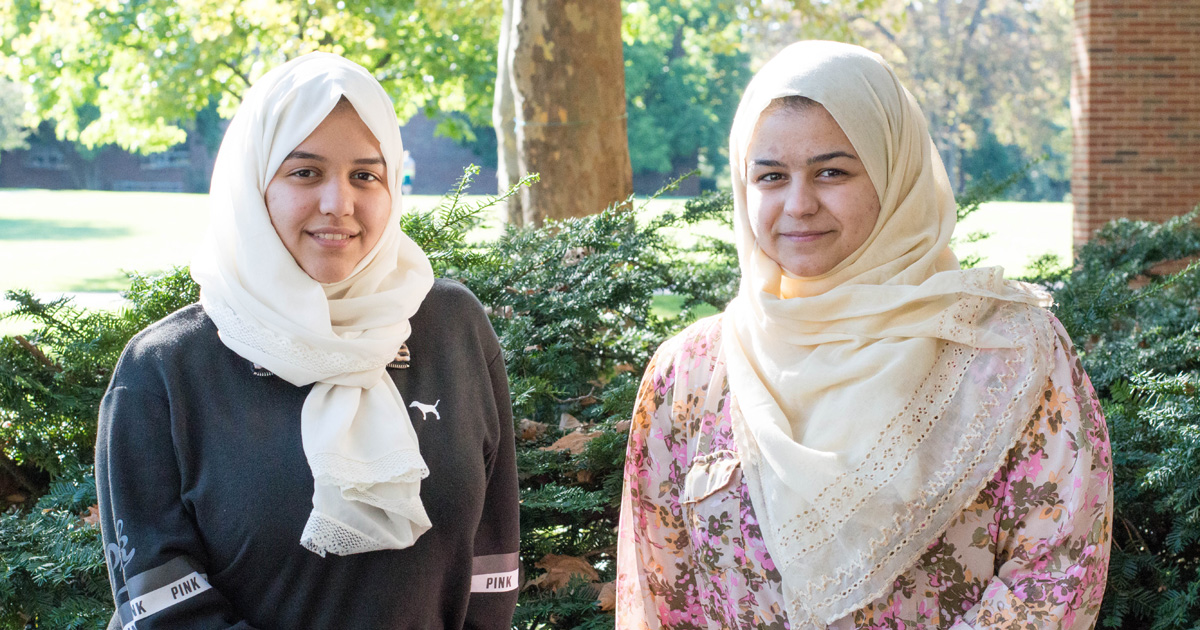Situating into college life isn’t easy, especially if you are coming from a different city. Being in an unfamiliar place, with unfamiliar people, does not provide the comforts of home. But imagine moving from a different country, whose cultural norms and languages are unlike your own. How would you be received by those around you?
At Capital, we have roughly 30 students from Saudi Arabia. You have probably seen them coming in and out of Renner Hall. Most of these students are enrolled in our English as a second language (ESL) program, which is a prerequisite most international students need to fulfill to start working on their undergraduate degrees.
One girl, Nora Alfawzam, was walking out from her ESL class when I spoke with her. She was wearing a hijab over her face and politely told me that she was uncomfortable shaking my hand. She spoke confidently about her experiences at Capital. This is her first semester, and she just moved to Ohio from her home country, Saudi Arabia.
“Everything is different in America, like the way we dress. But everyone respects me here,” Alfawzam said. “They are all so friendly. But what I like most about being here is that I like to learn. Before I came here, I was just sitting at home, and now I get to work on a degree.”
Though her experience has been positive at Capital, she has noticed a lot of students have misconceptions about what living in Saudi Arabia is like.
“Everyone seems to have this wrong idea about the country. A lot of people think we live in tents,” Alfawzam said. “I was in the hospital and a nurse who was checking my pulse was shocked to see that I had an iPhone. I mean come on… we have the largest oil field in the world, so of course we can have this type of technology.”
These types of misconceptions and stereotypes are not unfamiliar. While the Saudi students, for the most part, have been welcomed with open arms by students and the administration, they have experienced the sting of discriminatory comments.
“I am a commuter, and I was living in an apartment. During the summer, it was really hot and my air conditioning was not working,” said Sara Almalki, 21, who has studied biology and pre-med for three years at Capital. “I went to the office to tell the manager about the problem, and he said, ‘Oh, I don’t think it’s not working. Maybe it is because you are wearing a hijab all the time.’ ”
“I don’t wear a hijab at home, or with other woman, or with male relatives. A lot of people don’t know these things,” Almalki said. “Somebody even asked me how I showered with a hijab.”
Her sister, Esraa Almalki, moved to Ohio this year from Saudi Arabia and is still adjusting to life here.
“In class I sometimes don’t understand what each word is said,” Esraa said. “So sometimes I do stuff that he doesn’t want me to do. Sometimes people get mad or…annoyed with me. They are all really nice, but I just feel it, you know, I just feel it. Sometimes, it makes me feel like I just want to go home.”
Saudi Arabia, while having a region of desert, is a mixture of mountainous areas and skyscraper-packed metropolises. The population is 28.7 million. To put that in perspective, Texas has the population of 26.9 million. Though small, most cities are filled with a diverse group of people.
“I had someone ask me if we ride camels or drive cars. I thought that they were crazy,” Esraa said. “We actually have really nice cars in Saudi Arabia.”
Though they have experienced discrimination in the past, everyone seemed to agree that Capital is welcoming to Saudi students.
“I was considering transferring to OSU, but the interactions with the teachers and the relationships we can have here is unlike any other university. The classes are smaller, and there is more interaction with our teachers. That is why I told my sister about this place. The acceptance of your culture and the understanding of barriers; they understand that, and they help us deal with that and overcome them.”
Capital offers courses in its ESL program that helps Saudi students get used to rituals of everyday life in their new country, from getting them onto a COTA bus, taking them to a soccer game, or going on a trip to the the bank.
“I just want to say, it is true what they say. Capital is family,” Esraa said.

